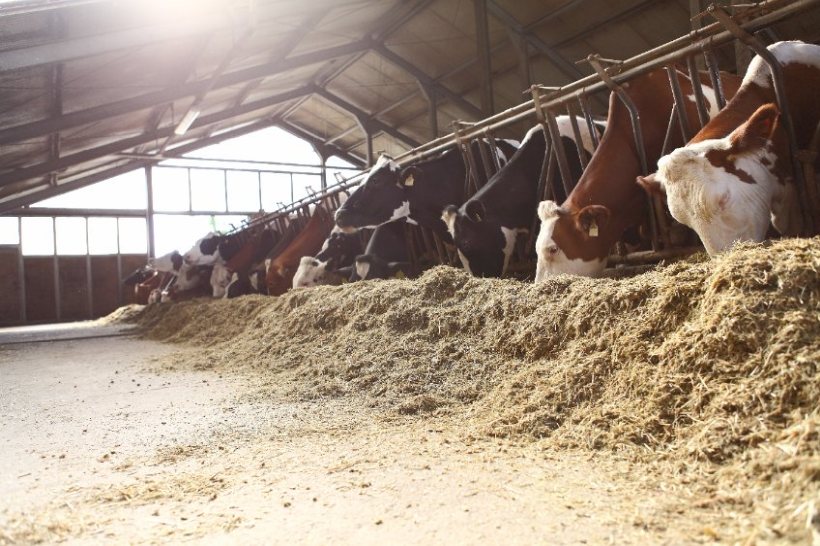Consultation on roll out of new animal feeds to help cut emissions

The use of new types of animal feed products that can help reduce methane emissions will be looked at as part of a new UK-wide consultation.
The UK government has launched the call for evidence asking farmers, scientists and the wider public for information on new feed use.
Feed products with methane inhibiting properties have shown potential in reducing reduce livestock emissions, especially from cattle.
These products may include ingredients like methane production inhibitors, seaweeds, essential oils, organic acids, probiotics, and antimicrobials.
Defra's consultation has been launched in agreement with the devolved administrations of Northern Ireland, Scotland and Wales.
They are seeking to find out how farmers and agri-businesses can increase adoption of this technology to support more sustainable protein production.
It will consider the current role of feed additives within the UK's farming systems, and the potential barriers that could prevent the introduction of methane suppressing feed products.
In 2019, agriculture accounted for 10% of total UK greenhouse gas emissions, with methane accounting for approximately 54% of that.
Agricultural emissions have reduced by 16% since 1990, largely due to innovation and advances in technology, with many farms using more efficient agricultural practices.
Government emissions and production statistics suggest that since 1990, a litre of milk is produced with 21% less GHG emissions.
And efficiency gains in dairy farming mean that farmers are now producing 11% more milk than they were in 2000, with 24% fewer cows.
Defra farming minister Victoria Prentis said: “It’s right to consider how we can help farmers produce food sustainably and reduce emissions from agriculture further.
“Well managed livestock can provide various environmental benefits and meat and dairy can both be an important part of a balanced diet.
"Through this call for evidence we’ll better understand the promising role emerging feed additive technologies for cattle could play and how government can help drive its development.”
The online call for evidence will run for 12 weeks, with a deadline set for 15 November 2022.








